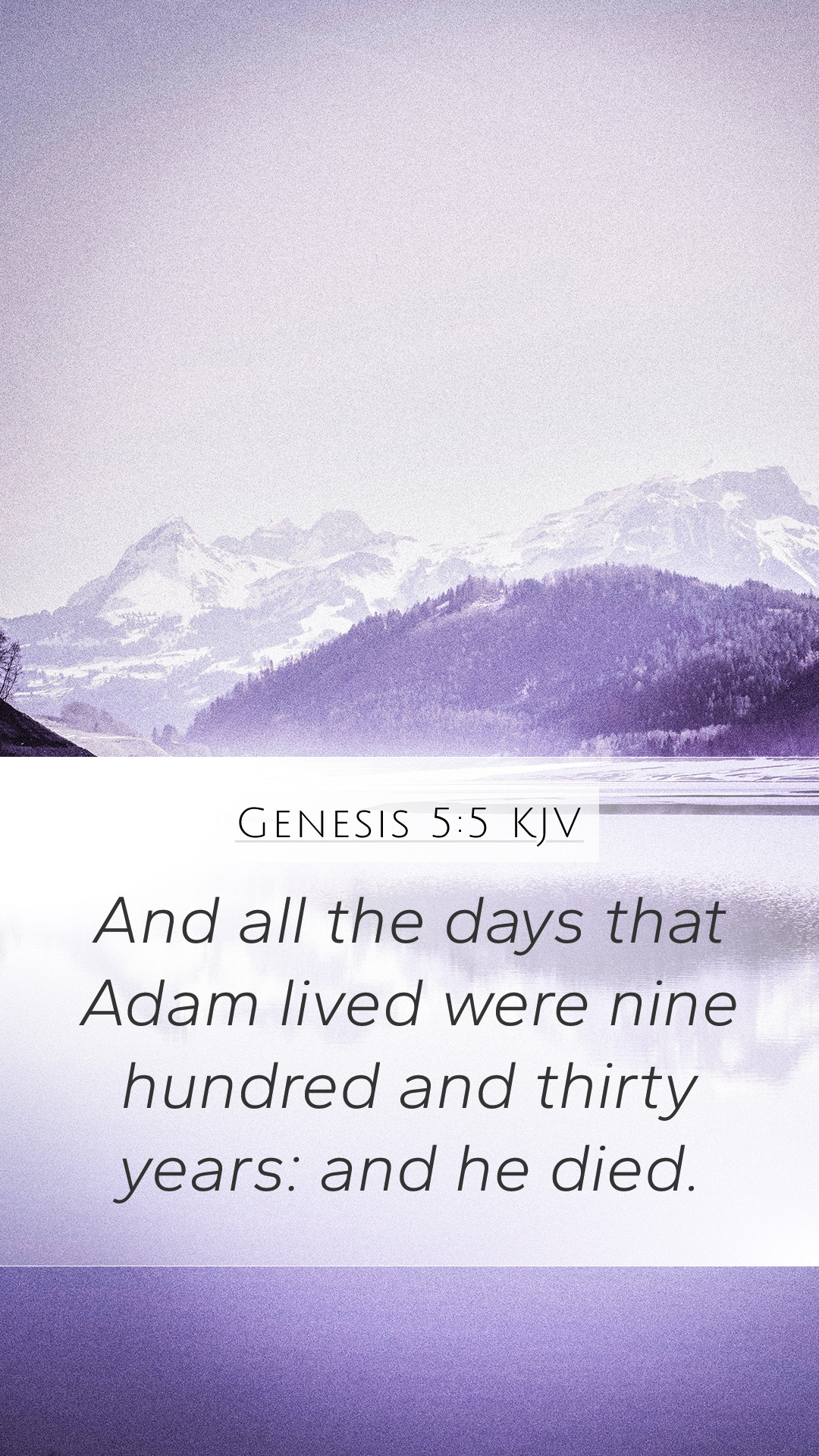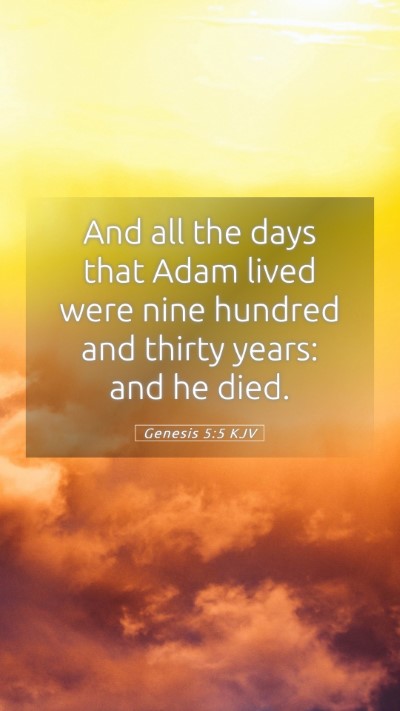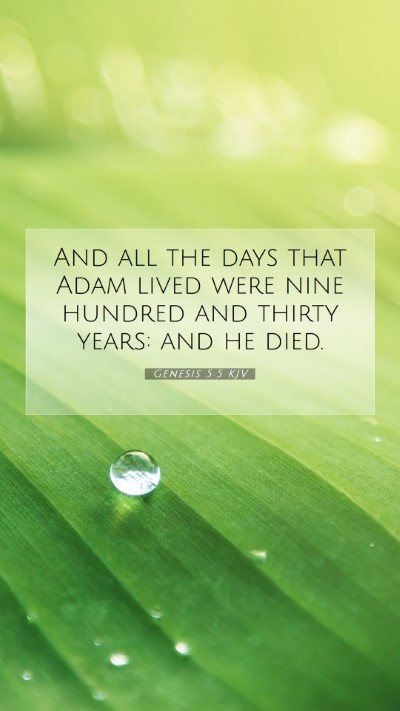Understanding Genesis 5:5
Genesis 5:5 states, “And all the days that Adam lived were nine hundred and thirty years: and he died.” This verse encapsulates the sum of Adam's lifespan, marking a significant moment in biblical history. The content of this verse emphasizes not only the length of his life but also the inevitability of death in the human experience.
Bible Verse Commentary
The meaning of Bible verses like Genesis 5:5 can often be enriched by looking at various biblical commentaries. Below, insights from notable public domain authors have been compiled:
- Matthew Henry's Commentary: Matthew Henry emphasizes the brevity of life in contrast to its longevity in Adam's case. He posits that although Adam lived for 930 years, he ultimately succumbed to death, which serves as a potent reminder of humanity's mortality. Henry suggests that Adam’s long lifespan does not shield him from death, highlighting the consequences of sin that entered the world through him.
- Albert Barnes’ Notes: Albert Barnes reflects on the significance of ages mentioned in Genesis. He points out that Adam's 930 years signify God's mercy and grace, allowing for a prolonged opportunity to turn to Him. Barnes also indicates that the lengthy lifespans of early humans might suggest a different environment and biological conditions than what we experience today.
- Adam Clarke’s Commentary: Adam Clarke notes that the mention of 'and he died' serves to underscore the universal truth of mortality. Clarke highlights that Adam, as the first man, had a monumental impact on the world, yet his death marks the fulfillment of God’s judgment following the fall in Eden.
In-Depth Analysis
When exploring the significance of Genesis 5:5, it is critical to recognize the context and implications of Adam's life and death. This verse not only provides a timeline but also serves as a theological foundation wherein death is introduced as a consequence of sin:
- Historical Context: The genealogy presented in Genesis 5 establishes a link between creation and the covenantal promises given to humanity. The long lifespans can be viewed as part of God’s original creation design, reflecting a world that was untouched by the extensive decay caused by sin over the centuries.
- Theological Insights: Adam’s death signifies the fulfillment of God’s warning to Adam about the consequences of eating from the tree of knowledge. This pivotal moment highlights the transition from innocence to experience in human history.
- Lessons for Today: The application of Bible verses such as this is vital for contemporary believers. It serves as a reminder of the importance of living in accordance with God's will, understanding that while life can be long, death remains an inescapable truth.
Cross References
Genesis 5:5 can be related to a variety of other scripture passages, which further enhance its understanding:
- Romans 5:12: "Wherefore, as by one man sin entered into the world, and death by sin; and so death passed upon all men, for that all have sinned."
- Hebrews 9:27: "And as it is appointed unto men once to die, but after this the judgment."
- Ecclesiastes 3:2: "A time to be born, and a time to die; a time to plant, and a time to pluck up that which is planted."
Conclusion
The profound implications of Genesis 5:5 extend beyond mere historical fact; it invites readers into a deeper understanding of Scripture and presents a canvas to explore themes of life, death, and divine judgment. Incorporating this verse into personal Bible study insights can foster a more comprehensive grasp of life's ultimate purpose in relation to God’s eternal plan.
For those delving into Bible study groups or seeking insights through online Bible study, the rich commentary surrounding Genesis 5:5 is an excellent starting point for discussions regarding the nature of existence and the impact of human choices.


